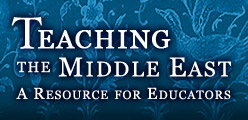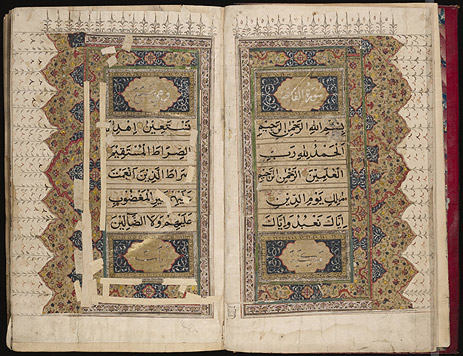Image Resource Bank
Image Gallery |  7 of 15
7 of 15 
Koran
In Islamic tradition, the Koran (sometimes spelled Qur’an) is considered literally the word of God as revealed to the prophet Muhammad (d. 632 CE). As the sacred scripture of Muslims, the Koran occupies a central place in Muslim devotions, providing guidelines for proper worship and for the conduct of a properly moral life in the world. It contains a diverse array of material, including pious exhortations, warnings of the inevitability of the Last Judgment, regulations for the operation of a righteous society and community, and examples of pious behavior drawn from the lives of earlier prophets (many of them known from the Hebrew Bible or Gospels) who are considered forerunners of Muhammad. Unlike the Hebrew Bible or the Gospels, it contains few extended narratives, rather, it alludes to the story of earlier prophets and communities so as to extract a key moral lesson from their history. Since it is not organized “front to back” as a continuous narrative, the first-time reader is advised to “read around” in the text by using an index to locate passages relating to a theme of particular interest. The opening pages of many Korans, such as the one shown here, are often richly ornamented.
Name: Koran
Material: Ink and paint on paper
Size: 34 cm () x 23 cm ()
Date: 14th or 15th Century CE
Place of Origin: Unknown
Location: Beinecke Rare Book and Manuscript Library, Yale University
Registration # and Source: Beinecke Rare Book and Manuscript Library Bibliographic Record Number - 2029100, Image ID Number – 1110183. Link to resource![]() (accessed June 17, 2010
(accessed June 17, 2010

 Fred M. Donner
Fred M. Donner
Professor of Near Eastern History, University of Chicago




